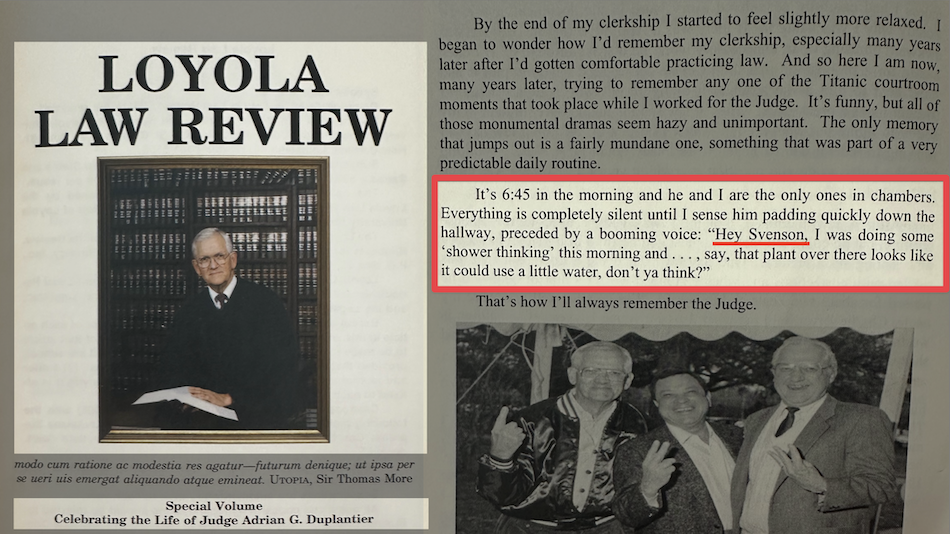In my last year at Loyola Law School, I was selected for the law review editorial board, which was supposedly a major achievement. I became a “managing editor,” which meant I was primarily responsible for obsessing over the Bluebook citation form.
Neither my fellow editors nor I had any idea of what constituted “proper legal scholarship.” But that didn’t stop us from lording over submitting authors as though we were emperors in the Roman Coliseum.
Upon graduation, I went to work for a federal trial judge in New Orleans. He was whip-smart and well-respected. He had been the Editor-in-Chief of Loyola’s law review back when he was in school.
Therefore, I assumed that he held law review in high esteem, but I was wrong.
During the job interview, he casually mentioned that nothing I learned from the law review would be of any practical use to me as a lawyer. I soon found out why.
I learned that he’d once submitted a scholarly article to Loyola Law School (his alma matter). The board edited it and then published it, after having changed key words that altered the meaning of an important passage.
Whoops!
He felt like he should at least have had the final edit.
He complained to the Dean about the “lack of adult supervision,” but was told: “this is how law reviews are run.” That was like telling him inmates run prisons because “that’s just how it’s done.” This baffled him, and added to the lifelong displeasure with law reviews.
After he passed away, I wrote a blog post about what it was like to serve in his chambers. The final passage ended with me describing how he used to come down the hallway and bellow my last name, which he used to mispronounce as “Swenson.”
The point was that he had a profound influence on me and, even though he never learned to pronounce my last name properly, I didn’t care.
No one who read the article could fail to miss this point. Well, almost no one.
One day Loyola Law School decided to put out a tribute issue in remembrance of Judge Duplantier. I was asked to send them my blog post so I emailed a text file to the law review.
My words didn’t need any fact checking because it wasn’t a scholarly work.
Nevertheless, they couldn’t just publish it as written. Guess what got changed?
Yep, they changed the spelling of my last name (e.g. from Swenson to Svenson) and thereby completely ruined the ending.
I’m sure whoever fixed the “typo” felt a small tinge of pride. Whenever I look at what got published I feel Judge Duplantier rolling over in his grave.
Take a look at the “typo”
Oh, the irony!!!
The sentence had quote marks around, for God’s sake. At a minimum they could have let me review the final edits. But, as we know, that’s not how law reviews are run.
My judge was right: law reviews are basically worthless.
General Resources
- Check out my Inner Circle (to participate in ongoing discussions about tech tools I discuss and recommend)
- Check out this Law-Tech Assessment if you want specific recommendations for improving based on the technology you’re using in your practice
- Click for a list of the Best Tech Tools for Lawyers
- Subscribe to: The 80/20 Principle newsletter (it’s free)
Use technology to radically improve your law practice by focusing on the few core elements that have the biggest impact.







